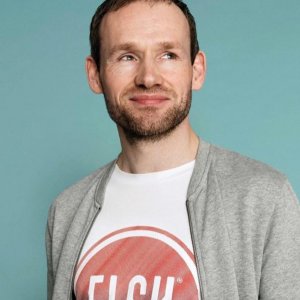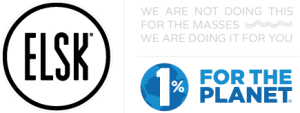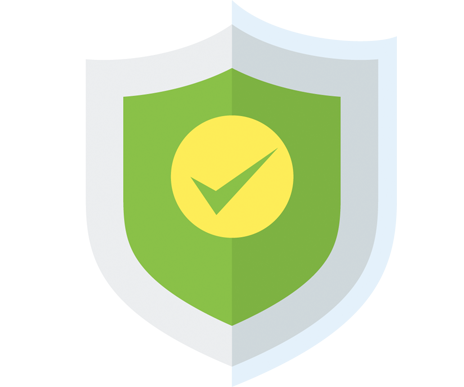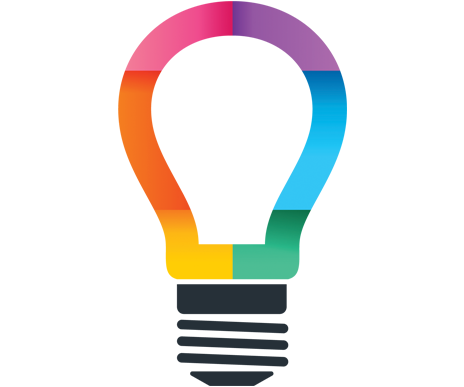ELSK will set new sustainability standards in the fashion industry
For the fashion brand ELSK, participating in the project Rethink Business – Focused value chain cooperation founded by Region Midtjylland, has led to new insights and ideas to introduce new sustainability standards in the fashion industry.
ELSK challenges the fashion industry
ELSK ApS was founded in Hanstholm (in North Jutland) in 2013. ELSK is a fashion brand inspired by its roots in Thy and a strong focus on sustainability. ELSK designs, gets produced and sells clothes for men and women through its web-shop and a limited amount of shops in Denmark with the right profile.
The company has a strategy based on designing high quality products with as little impact on the environment as possible. Products are made using natural raw materials with a long lifespan, easy to recycle and that give the customer value-for money.
In spring 2017 the company has decided to participate in the Rethink Business project.
– Sustainability is part of our DNA and, before starting this project, we had already achieved a lot in this area. But ELSK wishes to go to the next level by setting new standards for sustainable clothes production. At the same time, we want to ensure openness and full transparency on everything we do. Therefore, it was natural for us to participate in this project.
ELSK produces small collections, which makes the brand more exclusive and, at the same time, guarantees that everything gets sold.
– With our participation to the project, we wanted to get a second opinion on our current efforts and get inspired to do the right choices in the future, so we keep rising our own standards and, by that, we maintain a competitive advantage over our competitors.
– Through our increased and continuous focus on sustainability, storytelling, authenticity and direct communication, we can also distinguish ourselves more clearly from foreign competitors, that will make easier to start exporting our products in 2018, says Lars.
ELSK has already done a lot.
ELSK works with sustainable materials e.g. natural materials, recycled materials and ecologic cotton. The clothes are produced at factories which fulfil the standard of – or are certified in the leading certifications for ecologic textile fibers, GOTS (Global Organic Textile Standards).
In addition, ELSK has joined “1% for the Planet”, a global organization with over 1200 company members, that collects resources (both money and volunteer work) to benefit approved environmental organizations e.g. Plastic Change.
ELSK has also signed the 2020 Circular Fashion System commitment, established during the Copenhagen Fashion Summit 2017, which requires an increased use of recycled garments by 2020.
Making a sustainable development plan
During the project many possibilities and ideas to improve efforts were discussed.
– We started the process by mapping our current efforts and strategies within sustainability. We used that as a starting point to create our new sustainable development plan (Road Map), that describes our efforts and vision for the coming years and until 2023, says Lars Riis.
– In 2018 we have for example undertaken the process of obtaining the Nordic Swan Ecolabel certification for a T-shirt and a shirt, in order to prove that our materials are sustainable. We will also research possibilities to become 100% C02-neutral and to help a potential manufacturer in India to fulfil Western standards.
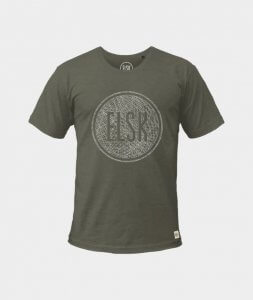 – During this and the coming years, we will work towards the goal of having most of our collection based on circular design principles, including utilizing re-used textiles and offer our customers the opportunity to return their clothes, so they can be resold on our website. Most of the proceeds will be devolved to NGO that support environmental protection.
– During this and the coming years, we will work towards the goal of having most of our collection based on circular design principles, including utilizing re-used textiles and offer our customers the opportunity to return their clothes, so they can be resold on our website. Most of the proceeds will be devolved to NGO that support environmental protection.
– In the long term, the goal is to achieve the GOTS certification and to make sure most of our collection fulfils the Swan Ecolabel-standard. In addition, we will draft and introduce our own Code of Conduct with requirements for our suppliers on e.g. minimum wage and water usage, concludes Lars Riis.
Through the project, ELSK has discovered that the company is very close to become CO2-neutral, as it buys wind energy and its district heating is nearly 100% produced by using renewable sources of energy (wood chips, excess heat and wind).
We strive for total transparency
ELSK wants to be totally transparent by showing and communicating which materials it uses and their advantages and disadvantages. Moreover, ELSK will show on its website where its clothing production factories are situated and who handles the shipping.
Lars Riis says: – The plan is to put our new sustainable development plan on our website, so everyone can see our short- and long-term goals and our efforts for sustainability.
Developing a new business model concept
As part of the project, ELSK has also developed and analyzed ideas for new sustainable business models. ELSK has chosen to focus on the development of new products in sustainable materials.
Lars Riis says: – We would like to develop new innovative products e.g. in recycled or new environmentally friendly materials, that distinguish ELSK in the industry and make sure that we keep a competitive advantage. Recycled materials are slightly more expensive to buy, and more time is spent on product design and development.
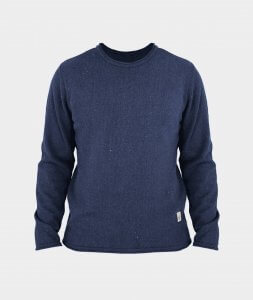 Since ELSK goes fast from thought to action, during the project has already started developing new designs in recycled material. This was realized in cooperation with its current factories in Turkey and Portugal.
Since ELSK goes fast from thought to action, during the project has already started developing new designs in recycled material. This was realized in cooperation with its current factories in Turkey and Portugal.
In September 2018, ELSK has launched its first shirts in recycled yarn (95% cotton) and the first T-shirts in upcycled material, composed by 52% upcycled cotton and 48% upcycled polyester.
The products are sold at the same price of the corresponding products made in e.g. ecologic cotton.
Business results
ELSK has invested a significant time in the project and in developing new designs in recycled materials.
– We think that our differentiated brand with focus on design, sustainability, quality and long lifespan is the future and it is meaningful for our customers. We do not only sell clothes, but also our values. In this way, we want to be up with the times and be personal, close to the final consumer, and with an independent attitude, that gives value for money – says Lars Riis.
– Thanks to our participation to the project we have now a better structure, and we have mapped our current environmental impact. In addition, we have got new ideas on how to reduce or eliminate environmental impact along the entire supply chain. At the same time, we have improved our options to communicate our sustainable journey to external parties.
– We have received very good consultancy support and inspiration from our consultant from Milestone Pro, the network of Lifestyle Design & Cluster and the other participants, concludes Lars Riis.
About the project Rethink Business
Region Midtjylland project Focused Value Chain Collaboration – Design for optimal resource utilization, is a 3-year project started with the first round, lasting approximately 12 months, in 2017-2018.
The project has given the participating companies knowledge on circular economy, Cradle to Cradle and collaboration models. With this background, solutions have been developed focusing on extending the life of products, reducing harmful environmental impacts, minimizing waste and improving cooperation across the value chain.
Every company in the project has been helped to develop a new sustainable business model.
Link
Read more:
- Rådgivning – Bæredygtig forretningsudvikling og cirkulær økonomi (Danish)
- Om projektet Rethink Business – Fokuseret værdikædesamarbejde (Danish)
- Article about ELSK in pdf
- Det nye CØ-program – Øget vækst gennem cirkulære forretningsmodeller i SMV’er (Danish)
Contact
Contact us for more information or a for a non-binding meeting by phone 86151714 or Read more at www.milestone-pro.dk

